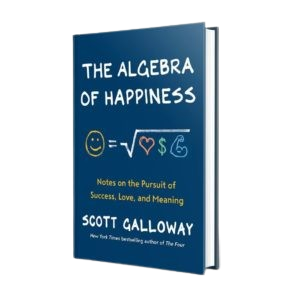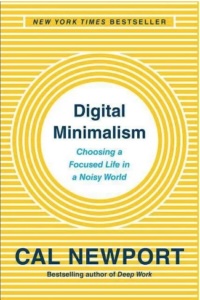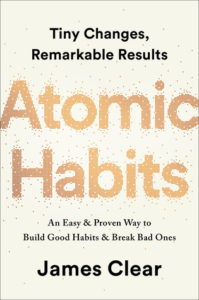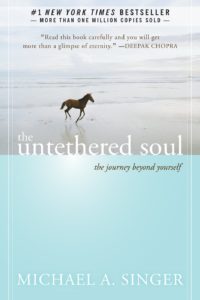Çalışmaya bir yıl ara verdikten sonra Amerika’da iş hayatına geri dönmek istedim. Herkesin çalışmak istediği büyük teknoloji şirketlerine girmek istiyordum. 8 yıldır hiç mülakata girmemiştim. Kullandığım teknolojiler eskimişti, öğrenmem gereken çok şey vardı. Hazırlanmaya başladım. Kodlama soruları çözdüm, konu tekrarı yaptım, online dersler izledim, deneme mülakatlarına girdim. Bir de baktım tam bir yıl iş mülakatlarına hazırlıkla geçmiş. Neden bu kadar uzun sürmüştü ki?
Çünkü korkuyordum. Birkaç gün sonra deneme mülakatım vardı ve şimdiden içimi huzursuzluk kaplamıştı. Gerçek bir mülakat bile değildi, endişelenmem çok saçmaydı. Ama elimde değildi.

The Four Agreements is a popular book among coaching circles. It talks about four agreements that you need to make with yourself:
- Be impeccable with your word: What resonated with me was noticing the power of the language we use and the words we pick, that it can be self-fulfilling if we speak negatively about ourselves. Being impeccable is not going against yourself, not using words against yourself, not judging or blaming yourself. It’s a powerful agreement to make with yourself.
- Don’t take anything personally: It’s important to remember that the other person has their own set of beliefs, trauma, mood, things going on in their lives etc. and their actions or reactions are not necessarily because of us.
- Don’t make assumptions: Noticing that you’re making an assumption is also very powerful. The easiest way to not make assumptions is to ask questions. For me, the challenging part with this approach is in situations where there is a lack of trust or incentive to lie.
- Always do your best: Knowing that you’ve done your best gives you peace of mind regardless of the outcome.
Overall, these are powerful principles, being able to stick to them requires awareness.

Matt Mochary is a CEO coach and probably one of those unknown heroes of Silicon Valley. He coached CEOs of several Silicon Valley startups, such as Steve Huffman, Sam Altman and Justin Kan. His book, The Great CEO Within, is on how to run a company as a CEO. The information density is amazing, it’s an excellent reference book with 200 pages of pure practical information. It’s been really refreshing to come across a business book without all the story telling and filler fluff.

Scott Gollaway is an entrepreneur and professor of marketing at NYU Stern Business School. The Algebra of Happiness contains his ramblings and life advice on success, love and happiness.
- On success:
- The trait most common among CEOs is that they exercise regularly.
- The definition of “rich” is having passive income greater than your burn.
- Big cities are Wimbledon, even if you aren’t Rafael Nadal, your game will improve by being on the court with him.
- On happiness:
- Being “in the zone” is happiness.
- On a balanced scorecard, the happiest people are those in monogamous relationships who have children.
- On love:
- The most important decision you’ll make is not where you work or who you party with, but who you choose to partner with for the rest of your life.
- Like someone who likes you.
- Male monkeys have higher ranks and more mating success if they have more social bonds, rather than being bigger or stronger.
- Love and relationships are the ends, everything else is just the means. In the end, relationships are all that matters.
What resonated with me was the overwhelming importance of relationships in our happiness. This 10 minute video is a good summary of the main points in the book and will get you 80% there.

Shoe Dog tells the story of Nike from 1962 to 1980. It’s a memoir about early days of Nike by its founder Phil Knight. The book is such a page turner, the moment I picked it up, I couldn’t put it down before finishing. It’s very well written, and the story is exciting as well. The betrayals and attempts for hostile takeovers while doing business described in the book were scary, it reminded me the importance of making things, creating value and not depending on other companies.

This is one of those could have been a blog post type of book. It can be summarized as:
- Spend alone time
- Take long walks without your phone to think
- Write down your thoughts as letters to yourself
- Messaging doesn’t reduce loneliness, you need face to face or verbal communication
- Don’t write comments on social media
- Hold conversation office hours (Ex: You can call me at 17:30 any day or have a regular coffee shop schedule)
- Reclaim leisure time
- Prefer demanding activities over passive consumption like watching TV or playing video games
- Create things in the physical world
- Do activities that involve social interactions (board games, crossfit, volunteering)
Some tips from the book Why We Sleep:
- Go to bed and wake up at the same time each day. Set an alarm for bedtime
- Exercise no later than two to three hours before bedtime.
- Avoid caffeine and nicotine.
- Avoid alcoholic drinks before bed.
- Avoid large meals and beverages late at night.
- Don’t take naps after 3 pm
- Take a hot bath before bed
- Dark bedroom, cool bedroom, gadget-free bedroom.
- Get outside in natural sunlight for at least 30 minutes each day.
- Don’t lie in bed awake. If you’re still awake after staying in bed for more than twenty minutes, get up.

The Art of Thinking Clearly is a catalog of thinking errors when we make decisions. Here are some of my favorites from this book:
Swimmer’s Body Illusion:
- Professional swimmers don’t have perfect bodies because they train extensively. Rather, they are good swimmers because of their physiques.
- Female models advertise cosmetics. But it is not the cosmetics that make these women model-like. The models are born attractive.
Sunk Cost Fallacy: When we have invested a lot of time, money, energy or love in something, this investment becomes a reason to carry on, even if we are dealing with a lost cause.

Atomic Habits offers practical advice on how to start new habits or get rid of bad habits. Here are some notes:
- Don’t underestimate marginal gains, if you get 1% better every day, you become 37x better in a year
- Your outcomes are a lagging measure of your habits: money (financial habits), weight (eating habits), knowledge (learning habits)
- People reflect your behavior back to you. The more you help others, the more others help you.
- Instead of setting goals, focus on having systems (goal: losing 10 pounds vs system: learning to eat well)
- Identity based habits: Focus is on who you wish to become
- read a book vs become a reader
- run a marathon vs become a runner
- learn an instrument vs become a musician
- The habit loop consists of:
- cue: signal reward (notice) -> make it obvious
- craving: acting force (want) -> make it attractive
- response: action (d0) -> make it easy
- reward: result (get) -> make it satisfying
- Be specific with your habits: I will [BEHAVIOR] at [TIME] in [LOCATION]
- Habit stacking: Start a new habit by doing it before / after an existing habit
- Environment matters: Drug addict soldiers stop their addiction when they return home from the war
- Two groups were given different tasks: a) Only take high quality photos b) Only take as many photos as you can. Best photos came out of the quantity group
- To visualize virtual progress, you can put physical objects things from one jar to another
- Reframe cues: Exercise as building endurance, saving money as increasing your future means
- To stop procrastination, scale down habits to their 2 minute version:
- “Read before bed each night” becomes “Read one page.”
- “Study for class” becomes “Open my notes.”
Overall, it was one of the most actionable, well written and interesting books I’ve read recently, highly recommended!

The Untethered Soul is a book on spirituality. A lot of the ideas in this book are an adaptation of Buddhist philosophy for a Western audience. It gave me a perspective on how to deal with my thoughts and emotions, and helped me understand what purpose meditation serves. I especially enjoyed the parts about happiness and death, they were good reminders. It’s interesting to note that the author, Michael A. Singer, was a software professional in medical industry. Here are some bits from the book that I want to remember:








